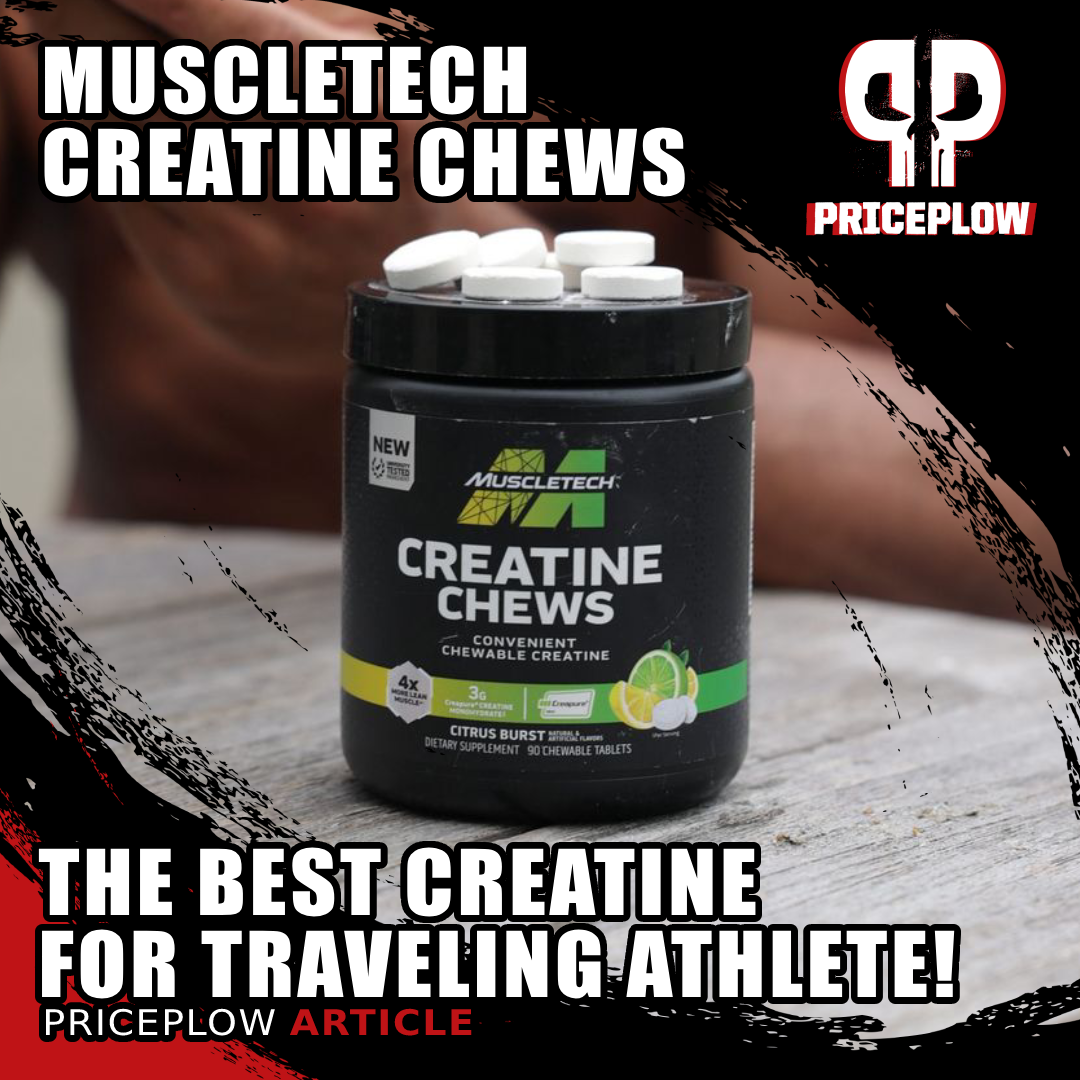
Traveling with creatine just got easier! MuscleTech's Creatine Chews offer a mess-free, TSA-friendly alternative to powders. Perfect for maintaining your routine on the go!
MuscleTech has a long history of innovative formulation, from their pioneering Burn iQ and EuphoriQ products to their combination formulas like Alpha Test Thermo.
They also have basics like creatine monohydrate in pill and powder options, but when it comes to our road trips and other travels, packing yet another baggie of pills and powders to fit all of that creatine just doesn't cut it for us anymore.
We can't replace all of those pills and powders, but when it comes to creatine, there's one that's a lot more fun and tasty on the road: MuscleTech's Creatine Chews.
Creatine for the Traveling Athlete
For many reasons, powders aren't conducive to travel. For one thing, they're messy. There's nothing worse than trying to scoop out some creatine and then getting jerked around in the car or by turbulence in the air.
Speaking of air travel, powders can make it a little bit difficult to get through security. After all, when a TSA agent sees a closed tub of powder, it often looks like a liquid to some of the machines, and they have to manually scan it, slowing you down.
There's a better way. Chewable tablets!
That's why MuscleTech's Creatine Chews are the most convenient format to ensure you have creatine on the go. Just pop a couple of these sweet and tangy chewables, and you're set.
We're going to dive into a little summary on how MuscleTech Creatine Chews work, but first, let's check PricePlow for good MuscleTech deals:
MuscleTech Creatine Chews – Deals and Price Drop Alerts
Get Price Alerts
No spam, no scams.
Disclosure: PricePlow relies on pricing from stores with which we have a business relationship. We work hard to keep pricing current, but you may find a better offer.
Posts are sponsored in part by the retailers and/or brands listed on this page.
MuscleTech Creatine Chews – Formula Recap
MuscleTech Creatine Chews feature Creapure creatine monohydrate as their primary active ingredient. Creatine is one of the most extensively studied and effective supplements for muscle building and athletic performance, especially creatine monohydrate.[1,2]
Its physical benefits start at increased muscle power and mass, including improved sprint speed, bone density, and energy levels.[3-14] But the benefits go much further, with improved cognitive performance[15-17] and even testosterone.[18-20]
-
Supports ATP production
The supplement works by aiding in the production of ATP (adenosine triphosphate), the body's energy currency. It does this by getting stored in muscle tissue as both creatine and phosphocreatine, the latter of which contains an added phosphate group. These two molecules support the production of ATP (energy!) within cells,[21,22] as the phosphate group gets added to ADP (adenosine diphosphate) in order to create ATP (adenosine triphosphate).[23,24]
This production of ATP leads to near-universal benefits, and it's one that we don't want to stop supporting when traveling!
While the human body can produce creatine naturally, supplementation can be beneficial because endogenous synthesis is metabolically expensive.[4] However, the average person loses about 2 grams of creatine daily, with this amount increasing during exercise.[4] Although creatine is found in animal products, particularly meat, most people don't obtain sufficient amounts from their diet alone.
-
3-5 grams per day for men, 2-3 grams per day for women
Many creatine supplementation protocols involve a loading phase of about 20 grams per day for a week, followed by a maintenance phase of 5 grams daily. However, consistent daily supplementation of 5 grams can also effectively saturate muscle stores over time, a more cost effective approach. The exact amount needed varies based on factors such as body mass, activity level, and dietary intake.
In general, our dosing recommendations have become 3-5 grams per day for men (depending on meat in the diet and size), and similarly, 2-3 grams per day for women. You can certainly go higher though.
-
Added dextrose is a good thing!
MuscleTech Creatine Chews offer a convenient alternative to traditional creatine powder supplements. The product uses dextrose (pure glucose) as its carbohydrate source, which is particularly effective for muscle glycogen synthesis. This formulation potentially enhances creatine uptake and provides a quick energy source, making it a practical option for those looking to supplement their creatine intake easily and effectively.
You can read more details in our main article titled "MuscleTech Creatine Chews Launched for a Sweet Citrus Burst".
-
Consistently Pass Lab Tests, Unlike Gummies!
Meanwhile, we've shown that MuscleTech Creatine Chews consistently pass lab tests, unlike what's been shown with creatine gummies. When you want stability, efficacy, and for the long-haul, you want to stay away from the water and the liquids that can turn your creatine into creatinine before you even get a chance to eat it!
All MuscleTech Creatine Chews Flavors
Check out our up-to-date list of Creatine Chew flavors below:
No need to take a break
Just because you're going out of town doesn't mean you need to let your workout routine slip. Hotels have (minimal) gyms, and worst case scenario, you can hit some bodyweight exercises and high-rep dumbbell sets.
Nor do you have to take a break from the body and mind boosting action of creatine. Just take a bottle of your MuscleTech creatine chews, and pop a few each day. To top it all off, it's much less likely to draw the ire of airport security.
MuscleTech Creatine Chews – Deals and Price Drop Alerts
Get Price Alerts
No spam, no scams.
Disclosure: PricePlow relies on pricing from stores with which we have a business relationship. We work hard to keep pricing current, but you may find a better offer.
Posts are sponsored in part by the retailers and/or brands listed on this page.
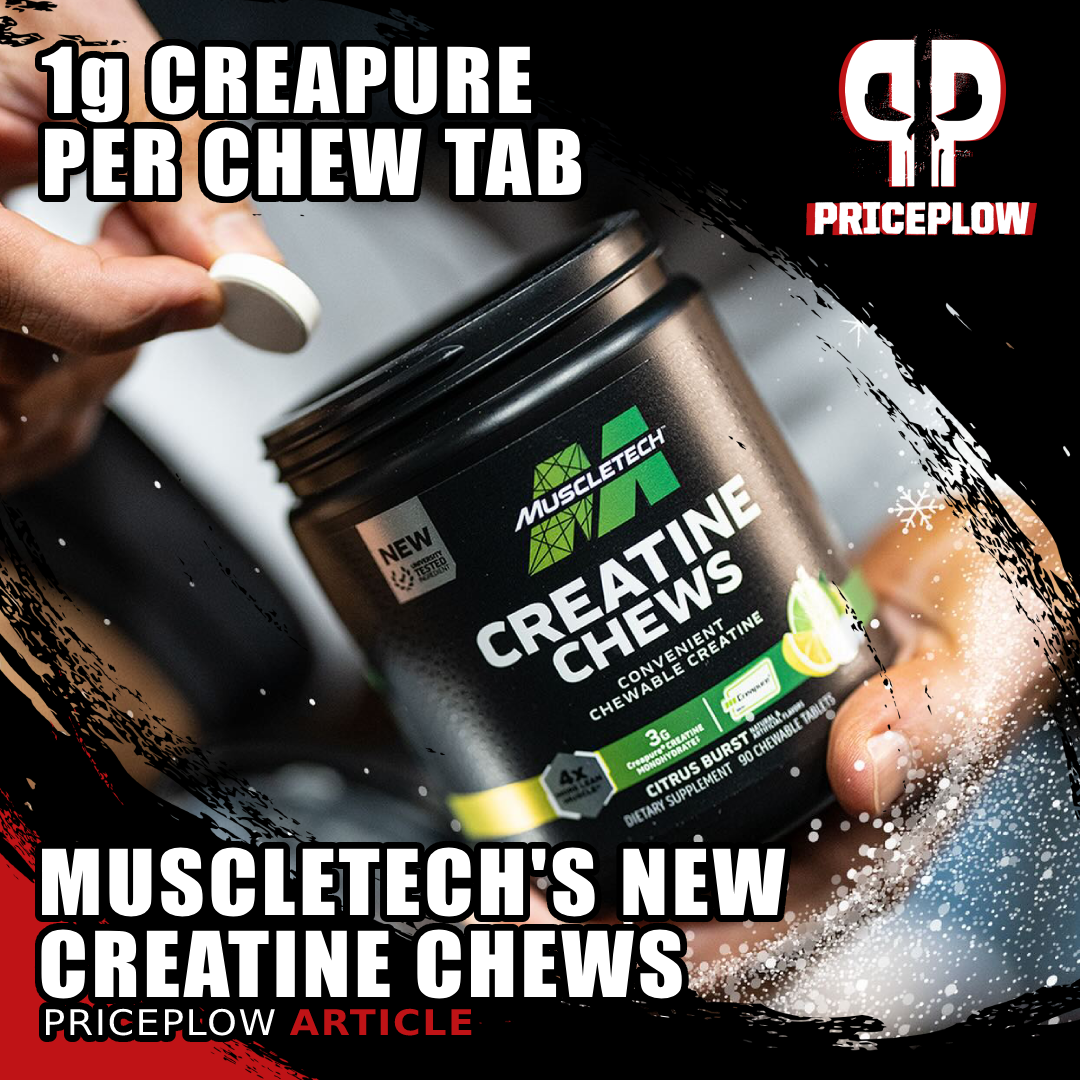
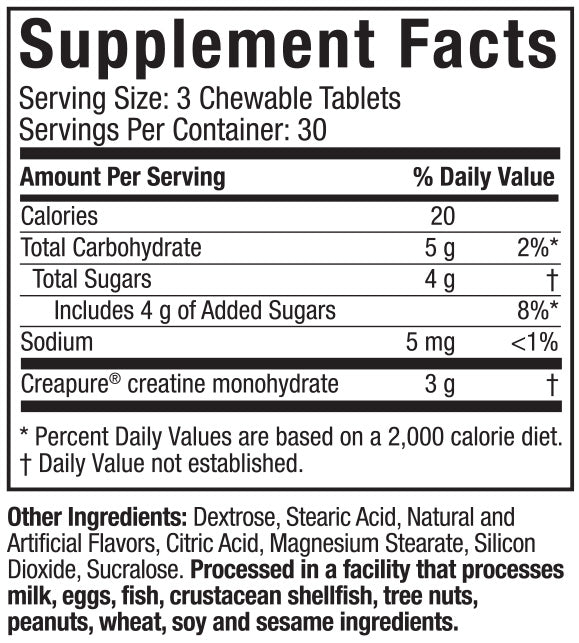
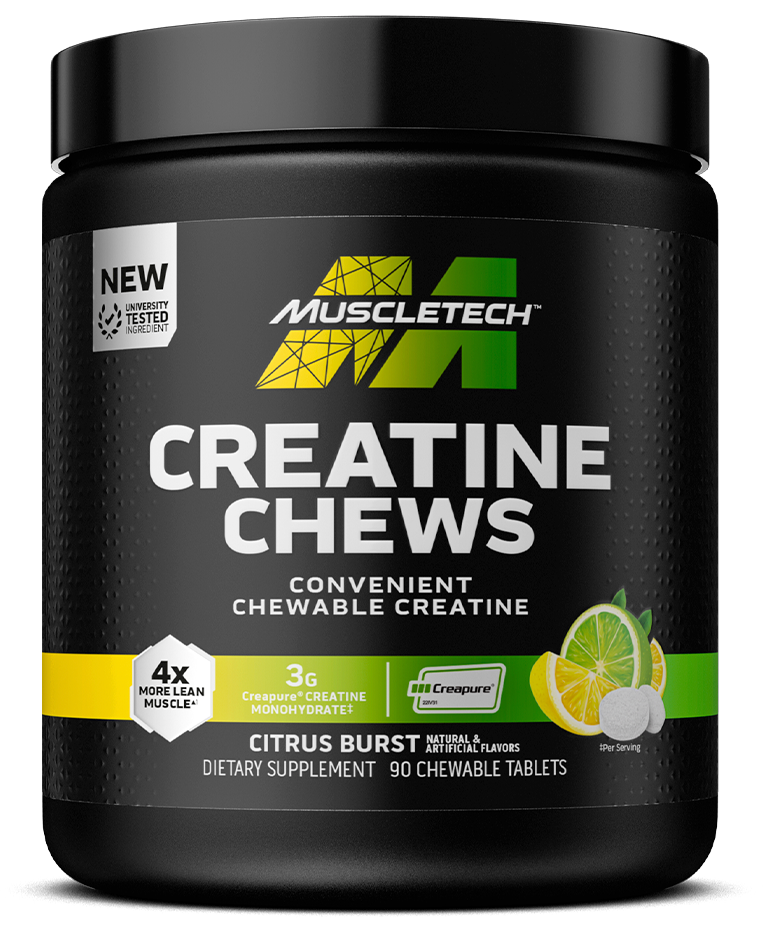
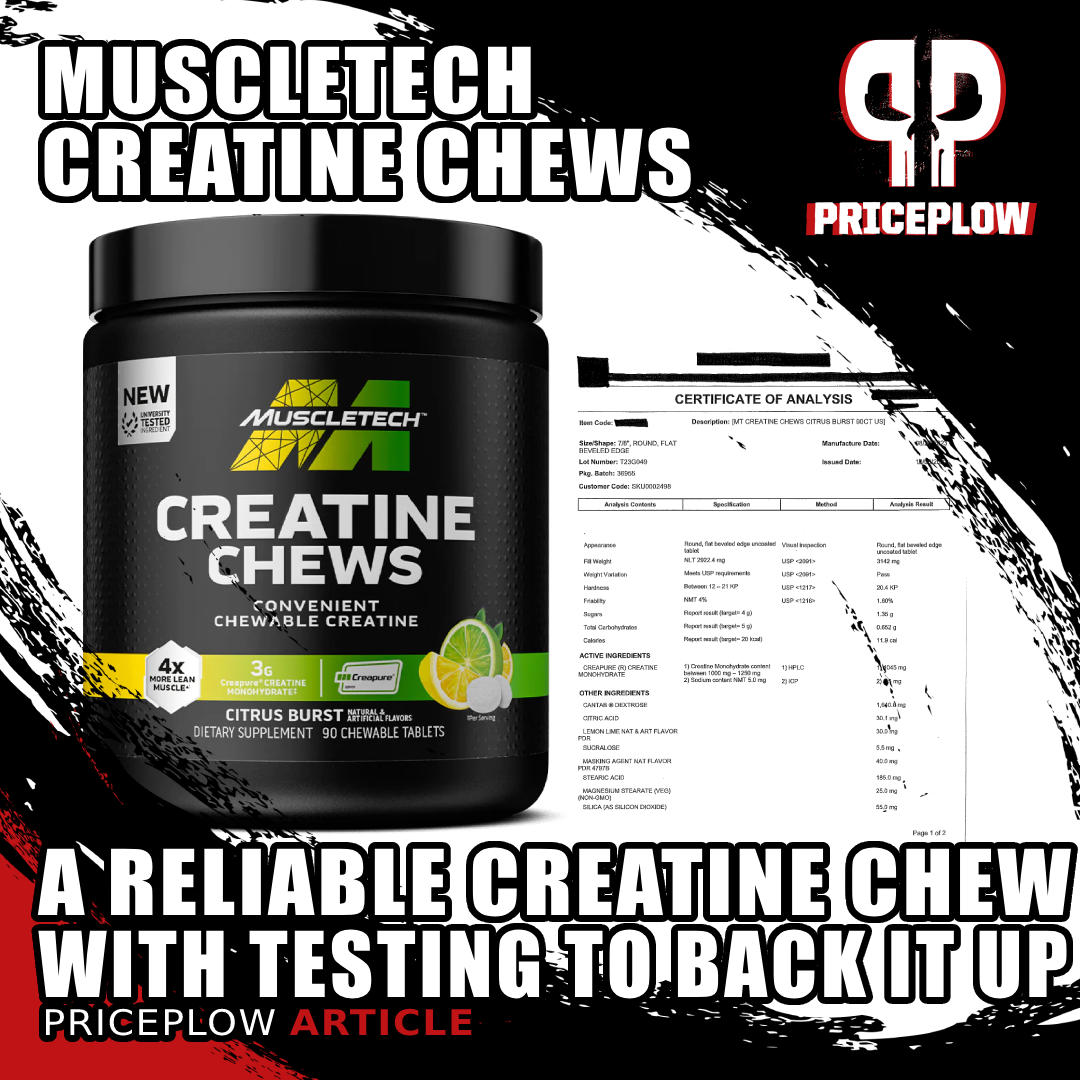


Comments and Discussion (Powered by the PricePlow Forum)